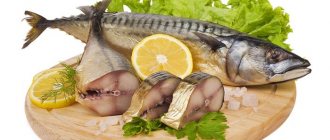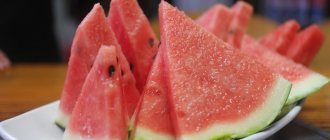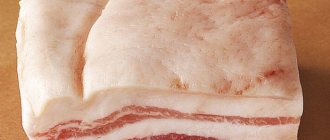A special case
There are special cases when a mother cannot follow strict requirements (excessive, debilitating restrictions are also stressful for the body!) and wants to pamper herself a little.
After all, New Year's and birthdays only happen once a year! Experts recommend that a young mother refrain from drinking alcohol throughout the entire period of breastfeeding, and if this does happen, then adhere to a number of rules.
Expressing milk after drinking drinks containing alcohol does not affect the rate at which alcohol is eliminated from the body and only helps relieve symptoms associated with breast fullness.
Drinking alcohol during pregnancy should be completely avoided, since there are no safe doses of alcohol for pregnant women and unborn babies.
Moderation in everything
Finally, we would like to remind you that even the healthiest foods will not benefit the baby if the mother does not use common sense in her actions. Even with the best intentions, you should not consume the full list of permitted foods every day: the most “innocent” of them in large quantities may well provoke allergies. Also forget the common “now you have to eat for two”: not “for”, but “for”, so try to avoid overeating, it will not benefit either you or the baby. Now the best thing is a balanced and varied diet with meals correctly distributed throughout the day (experts recommend 5-6 meals a day in small portions with a decrease in the number of calories consumed in the evening), week, time of year (observe the principle of seasonality) and the entire feeding period.
Health to you and your baby!
Features of the diet for allergies in a child
If a child has an increased tendency to experience allergic reactions, the daily diet should be selected especially carefully.
If a child exhibits minor symptoms, the following should be avoided:
- Cow's milk.
- Sweets, especially chocolate.
- Honey.
- Citrus fruits.
- Gribov.
- Canned foods.
- Spices.
- Seafood.
If the exclusion of the above products does not lead to an improvement in the child’s condition, then you should return to the diet that is recommended for the first ten days of life. Then you should gradually reintroduce the permitted foods and carefully monitor the reaction.
For more pronounced manifestations of allergies, you should be examined by a pediatrician, who will identify prohibited foods and help you create a special diet. Such nutrition may seem rather harsh and limited, but the child’s health will depend on it. Additionally, drug treatment may be recommended.
Diet for the first postpartum week
In the first three days after birth, it is recommended not to overdo it with food, focusing on drinking. The body needs to replenish fluid loss after labor and stock up on it to produce milk.
Pure non-carbonated mineral water is very good as a moisture supplier. You can drink weak sweet tea, dried fruit compote and liquid fermented milk products. Breakfast for a nursing mother can easily replace a glass of drinking fermented milk product.
- On days 4-7, porridge is introduced into a woman’s diet. The emphasis should be on buckwheat and oatmeal; you can also eat millet and wheat. They are prepared in water without salt or with a minimum amount of it.
- You should not eat potatoes in the first days because of the abundance of starch in them, and in the first month you should not eat cabbage (this applies to the white cabbage variety). Cabbage causes excessive gas formation in a newborn and, as a result, pain along the intestines.
- You can eat boiled or steamed vegetables in small quantities; you are allowed to eat 1 chicken egg every three days.
- It is useful to include liquid soups with vegetable broths in your diet.
You need to carefully introduce new foods into your diet after pregnancy, following the “1 product – 1 day” principle. This approach will help avoid allergic reactions, excessive gas formation, and stress in the child. Each new product must be introduced separately, that is, 1 product – 1 day, and carefully monitor the reaction of the newborn’s body (for rashes, stool problems, gas formation)
Each new product must be introduced separately, that is, 1 product – 1 day, and carefully monitor the reaction of the newborn’s body (for rashes, stool problems, gas formation).
- By the end of the first to the beginning of the second week after birth, you can include boiled fish in your diet.
- After a week, you can try rabbit meat or lean veal, as well as white chicken meat.
- Do not forget that three liters of fluid per day is now the norm for a nursing woman.
- You can include bread in your diet in small quantities, preferably bran and dried.
- For dessert, you can treat yourself to a baked apple or homemade marmalade.
- You need to eat cottage cheese. The fermented milk drink remains unchanged for breakfast and dinner.
By the end of the second month, you can slowly add beetroot, cabbage soup, freshly squeezed juices and fruit drinks, and fresh vegetables to your diet. Everyone also introduces one product per day. You should still eat cottage cheese and drink fermented milk products for breakfast and dinner (or before bed). Some mothers “suffer from the desire” to walk to the refrigerator at night. To avoid this, you can keep a glass of kefir and drink it before feeding your baby at night.
A woman who takes a responsible approach to bearing a child gets used to a healthy diet and lifestyle during pregnancy.
Even if she didn’t focus her attention on these processes before, now they are becoming extremely important
However, a woman’s diet during pregnancy and her diet during breastfeeding are two big differences.
Her diet is especially different in the first months of feeding. It is important to adhere to a certain diet and maintain a drinking regime in order to stimulate lactation, supply the body of the newborn, and then the baby, with nutrients and vitamins, and protect him from allergies. You need to eat right from the very first day after giving birth. Even after childbirth, the child and his nursing mother remain in a sense a single whole, with a “single” digestive system
This means that a woman’s eating habits primarily affect the child’s health and development.
Menu for mother when feeding for the first month
1. Drink up to 2.5 liters of fluid per day. Almost all the water will go to lactation. There is no need to exceed this norm, it will only reduce milk production.
2. Give preference to a raw food diet.
3. Eat fresh berries, vegetables and fruits (300 - 350 grams per day). They will help you recover faster after childbirth. But don’t forget about one condition - we eat only what grows in our area. Exotic delights are out of the question for now.
4. The basis of your diet should be the following products:
- Stewed or boiled meat (not fatty). Ideally, it should be veal or rabbit;
- Milk and dairy products – little by little and not often. Cottage cheese (up to 200 grams 3 times a week) and sour cream 15% fat are very useful;
- Fish (hake, pike perch, cod) – 1-2 times a week;
- Eggs – 1 pc. in two or three days;
- Bread – rye, from wholemeal flour;
- Pasta – from durum wheat;
- Porridge – millet, buckwheat, oats;
- Oil (sunflower, corn, olive) – 15 grams per day;
- Butter – 30 grams per day;
- Compotes of prunes, dried apricots, raisins;
- Vegetables (pumpkin, carrots, zucchini, beets) – 450 grams per day, boiled or fresh. You can also steam vegetables. As for potatoes, you shouldn’t overuse them;
- Almonds - a small handful, sometimes;
- Marshmallows, marshmallows made from natural ingredients - 1-2 times a week, a little at a time.
We suggest that you familiarize yourself with: General urine analysis of adults. Standard indicators and interpretation of the results of a clinical urine test 5. And this is a list of prohibited products. It applies to the first three months of the baby's life. Take note:
- Canned food – fish, meat, dairy;
- Vegetable marinades;
- Homemade pickles;
- Ketchups;
- Semi-finished products;
- Cow's milk (whole);
- Mayonnaise;
- Hot sauces, except soy;
- Legumes;
- Strong tea;
- Juices;
- Coffee;
- Alcohol;
- Dried fruits;
- White cabbage;
- Grape;
- Honey;
- Nuts;
- Chocolate;
- Cheese – processed, with mold;
- Sausages.
6. Be sure to keep a food diary and record in it the date of introduction of the new product and the baby’s reaction. Don't binge on food, especially if you have people in your family with allergies. Introduce foods gradually and carefully monitor your child’s well-being.
| date | Product | Baby chair | Baby's skin | General condition of the baby |
| We try a new product in the first half of the day in small quantities. Then we wait 2 days and observe the child’s reaction. | We note everything unusual: consistency, presence of greenery or mucus, color, multiplicity. | Presence or absence of rash | Note moodiness, bloating, colic |
It is quite difficult to compile a menu for a nursing mother by month, a table according to Komarovsky for the first and subsequent months. As for the first month, you must definitely drink two liters of clean water a day - all of it will be used for lactation. You should not drink more, it will reduce the amount of milk.
It’s great if the menu contains a lot of raw foods that are not heat-treated. Berries, fruits and vegetables can be eaten up to 350 grams per day. They help the body recover quickly after childbirth. You just need to eat foods that are grown and harvested in your area: without toxins, insecticides and nitrates.
Products for a nursing mother: basics of choice
- safety;
- quality;
- completeness that comes from diversity.
The food consumed has a partial (albeit quite large) influence on the quality of breast milk, mainly on the content of micronutrients (vitamins and minerals), and partly on the fat content. The mother’s mood, her physical condition and other factors also affect this product of the mother’s body, which is necessary for the baby.
For normal lactation, not only diet, but also drinking regimen is of great importance. A nursing mother should drink at least 2, and preferably 2 to 3, liters of clean water per day.
In addition to nutrition, the psycho-emotional state also plays a major role. If a young mother is depressed, nervous, sad, hormones are released into the blood, which then penetrate into the milk. They can worsen physical health and affect the baby’s fragile nervous system.
Products to increase lactation
Breast milk supply is determined more by genetics than by diet
However, if there is a lack of breast milk, you should first of all pay attention to the amount of fluid consumed. The drinking regime of a nursing mother is extremely important for maintaining full lactation
Mom should drink at least 1 liter of liquid in addition to the usual volume (in the form of tea, milk, juices, drinks, etc.). Thus, you need to drink at least 1.5-2 liters per day. It should be noted that large amounts of liquid should not be introduced into the diet immediately after childbirth. So, before the start of lactation, during the period of colostrum production, the amount of liquid consumed (including first courses, fruits and vegetables) should be limited to 1 liter. Otherwise, with the onset of lactation, which occurs on average 2-4 days after birth, the amount of milk may be excessive, which will complicate its separation, and as a result, lactostasis may develop.
To increase lactation, you can consume specialized products. They are recommended for inclusion in the diet during breastfeeding and help fill the need for the most important vitamins and microelements: iron, folic acid, iodine, vitamins C, B1, B2, B6, B12, biotin, zinc. The undoubted advantage of special fortified juices is that a woman, without changing her traditional eating habits, receives vitamins and calcium in an easily digestible form. To increase milk production, teas with extracts of medicinal plants that are natural lactation stimulants are also recommended: anise, nettle, fennel, cumin, lemon balm.
The issue of regular bowel function is very important for a nursing mother. A nursing woman should ideally have bowel movements every day or at least once every 48 hours. To prevent constipation, it is necessary to include in your diet enough vegetables and fruits, fermented milk products (natural yogurt without added sugar and fruit), oatmeal and buckwheat porridge, and also do not forget about juices, compotes and berries.
Products
In general, a short list of permitted products looks like this:
Vegetables can and should be eaten, but they should be thoroughly cooked. At least in the first couple of months, it is better to boil, stew and bake them, but under no circumstances eat them raw.
Only after the baby is three months old can you begin to gradually introduce raw vegetables into your usual diet.
When eating fruits, you should be careful, because they are often the cause of allergies in a newborn. You can safely eat bananas, as well as baked apples. When the child turns 1 month old, you can start drinking freshly squeezed juices, and after he reaches the age of three months, it is recommended to consume one new fruit every 2 days
At the same time, you should carefully monitor his reaction.
You can eat any kind of porridge; they all help improve digestion and saturate the body with useful microelements. The only thing you should give up during breastfeeding is instant cereal.
A young mother can consume all soups, provided that they are prepared with vegetable broth.
Meat is allowed, but only separately from other products. Try to choose dietary varieties. You can eat absolutely any cheese. You can eat poultry meat. Exactly a week after the birth of your baby, you can treat yourself to a variety of fermented milk products, for example, fermented baked milk, cottage cheese or yogurt. Mom can eat fish, but only on the condition that it is boiled or baked.
Eating eggs is allowed, but you should monitor the newborn’s reaction, as they are a strong allergen. It is best to eat whole grain bread with a variety of additives during this period. It is better to give up sweets for the entire period of breastfeeding. The best option is to eat a small amount of dried fruits, bagels or biscuits. A young mother can use all oils.
Other sweets allowed include crackers, marmalade, marshmallows and marshmallows, provided that none of these desserts are supplemented with chocolate. For drinks, you can drink weak teas and coffee, any herbal tea and a variety of fruit drinks.
After the baby turns 1 month old, you can safely eat sour cream, a variety of nuts and jam.
It is worth highlighting prohibited products separately. They must be either completely excluded from the diet or their consumption reduced to a minimum:
- Products that can cause severe allergies are immediately released. These include:
- crab;
- cancer;
- chocolate;
- coffee.
- A variety of exotic fruits and citrus fruits. And also any fruits with bright pigmentation, as they are the strongest allergens.
- Products containing large amounts of preservatives, for example:
- peas;
- beans;
- grape.
- For the first time, you should give up mayonnaise and milk.
- It is strictly forbidden to drink alcohol, as this affects the development of the child.
- It is forbidden to eat fatty meat, in particular lard.
- The amount of sugar consumed should also be kept to a minimum, literally a couple of teaspoons per day.
Diet price
The first thing a mother should do is to mentally prepare for a difficult month. Even the strictest diet will not help relieve your baby of gas and diarrhea. And that’s all, because the baby adapts to the outside world, in particular, to receiving food through the stomach, and not through the umbilical cord. There is no need to be afraid of this at all. After a short amount of time, the baby will begin to get used to the new conditions, and the mother will be able to introduce new foods into her diet.
When choosing a nutrition program for breastfeeding, a young mother should pay attention to the now quite popular Komarovsky diet. https://www.youtube.com/embed/bKtZOXbUUWg
The essence of this diet is to avoid any sour, spicy or salty foods. And also from any products that contain preservatives or dyes.
Of course, all strong allergens should be completely excluded from the diet; it is for this reason that it is forbidden to consume sweets and citrus fruits. Moreover, this must be done until the child completely refuses breast milk.
According to the Komarovsky diet, a young mother can adhere to the following rules in her daily diet:
Drink green teas, a variety of compotes made from dried fruits, apple and carrot juices
You can drink milk with extreme caution, but always baked milk and in small quantities.
A woman can consume foods as she wishes, but limit her intake of fat. Of course, you shouldn’t think that a large amount of sour cream eaten will immediately end up in the milk and it will become harmful to the baby.
Most likely, all the sour cream will end up on the sides of the mother, who will already have to cope with her figure during this difficult period.
To improve lactation and fully provide the baby with all the nutrition he needs, you need to consume nuts and yeast, but only in small quantities. In addition, the attending physician may recommend that the young mother purchase any additional medications at the pharmacy.
The diet contains ordinary and affordable products, from which you can easily prepare dietary dishes. Relatively expensive are beef, chicken, rabbit and fish. All other products are inexpensive. The cost of food for a week can be 1400-1500 rubles.
The diet of a nursing mother according to Komarovsky contains ordinary, financially affordable products from which many dietary dishes can be prepared. The cost of food for a week varies between 1600-1700 rubles.
Daily diet to increase lactation
The nutrition of a nursing mother has a direct impact on the amount of milk produced in her body. If you don't eat well, the quality and quantity of your milk will suffer. How to increase lactation, what foods to eat? First, it is worth remembering that the daily diet should be 2500 kcal. You shouldn’t eat for two; you need to learn how to choose the right food.
To improve the quality of milk, daily include in your diet 200 g of meat or fish, a glass of kefir or milk, 100 g of cottage cheese, 30 g of hard cheese, that is, the emphasis in nutrition should be on protein-rich foods. If you supplement it with fruits, vegetables, and whole grain bread, lactation will increase and the body will be provided with all the necessary substances
It is also important to observe the correct drinking regime in the diet of a nursing mother. You should drink two liters of fluid per day
Menu for women when breastfeeding from 2 to 6 months
Menu for a nursing mother by month, the table according to Komarovsky shows that when the baby turns two months old, the diet can be expanded. Already during this period, the amount of fresh vegetables and fruits can be slightly reduced, and more cooked food can be added to the diet.
For example, you can cook lean borscht with tomato juice, eat any seasonal fruits and nuts (with the exception of peanuts and pistachios). Supplement rabbit and veal meat with quail and chicken. A few spoons of sweet jam are allowed as dessert.
How much should you drink and what drinks?
You should drink enough liquid. If there is an excess of it, the following troubles can happen:
- edema, from which many women who have given birth already suffer;
- kidney overload;
- a large flow of milk, which the baby will not be able to suck out, which can lead to stagnation (lactostasis).
Not drinking enough fluids is also dangerous. It can lead to the following consequences:
- dehydration of a woman's body;
- milk is too thick, which can also contribute to stagnation.
A person’s need for fluid is greater in dry, hot weather, not only in summer, but also in winter, if the air in the apartment is not sufficiently humidified. You need to listen to the needs of your body: if you want to drink, quench your thirst; if you don’t want to, don’t force yourself too much. The total volume of liquid consumption (including soups, drinks) for a nursing woman per day should be about two liters.
Suitable for quenching thirst:
- ordinary drinking water;
- mineral water without gases;
- dried fruit compotes (dried apricots, apples, raisins);
- weak green or black tea, herbal teas, rosehip infusion;
- fermented milk drinks;
- a small amount of juice (apple, grape, carrot).
Do not overuse drinks containing caffeine. Coffee and tea in large quantities (more than four cups a day) can cause sleep disturbances in a child.
There is no need to force yourself to drink water, but keeping a glass of water nearby is a vital necessity.
About a common mistake of breastfeeding women
In his interviews and books, Dr. Komarovsky says that many mothers make one mistake - they eat a lot and too often. You need to understand that when breastfeeding, a woman should eat normally and not overfeed herself with large amounts of food. Otherwise, you will even get the opposite effect when the baby receives waste and toxins with the milk.
Read about how to prepare for the appearance of your first teeth.
Milk production, this is the second common misconception of many mothers, does not require many calories. As a rule, the process requires no more than 500 calories per day from the body, and all excess will settle on the hips, sides and abdomen.
Sample menu for breastfeeding
Based on the doctor’s recommendations, you can create a daily menu that will include a variety of foods that will allow your mother to always feel full and satisfied.
Recommended menu for 1 day - table
| Meal times | Meal options |
| Breakfast |
|
| Dinner |
|
| Afternoon snack |
|
| Dinner |
|
| Second dinner |
|
There is no need to invent new recipes or search for super-healthy products. You can simply change the methods of preparing your usual dishes, replace harmful ingredients with healthy ones, use less pepper, salt and sauces. So, I stopped frying soups: now I add onions and carrots to cook along with other vegetables. Now I marinate meat and fish not in mayonnaise, but in sour cream or yogurt (which, by the way, I make myself in a slow cooker). I steam the cutlets or bake them in the oven, although I used to fry them. I put the salad on two plates. I fill one part with olive oil for myself, the other with mayonnaise for my husband and eldest son. By the way, they themselves did not notice that their diet gradually became more correct from a health point of view. I realized a long time ago: the worst changes are drastic ones. This is when you declare: that’s it, from today no sugar (white flour, sausage, etc.). Such strict prohibitions always end with you going and eating like a pig, without measure of what you denied yourself. But by gradually replacing familiar dishes with healthy ones, you can achieve significant success. You just need to start as early as possible, and not when your beloved baby’s cheeks have turned crimson-red.
How to independently create a menu for a nursing mother in the first month
There is a huge variety of diets that can be used during lactation. But when choosing one of them, the main thing is not to harm your body. Having some knowledge, you can create a sample menu for breastfeeding for the first month yourself
It is important to consider the following:
- overeating and prolonged feelings of hunger should not be allowed throughout the day;
- do not reduce the amount of fermented milk products in the diet;
- fresh products should prevail on the menu;
- Do not consume excessive amounts of sweets;
- observe the drinking regime.
- When creating your own menu, you need to build on your taste preferences and health status.
The correct menu for breastfeeding is not boring at all
Menu for a week during guards
| Breakfast | Snack | Dinner | Dinner | |
| Monday | Oatmeal with milk, pear, rosehip infusion | Yogurt with unsweetened cookies | Boiled veal, quinoa, fresh cabbage and carrot salad | Fish casserole |
| Tuesday | Cheesecakes with syrup, green tea | Cottage cheese with dried fruits | Chicken cutlets, millet, beetroot, cabbage and pea salad | Steamed omelette |
| Wednesday | Buckwheat porridge with water, marshmallows and herbal decoction | Apple | Stewed fish, rice | Any salad, dressed with oil and steamed cutlets |
| Thursday | Rice porridge, marshmallow | Handful of mixed nuts | Chicken breast, grilled vegetables | Fish casserole |
| Friday | Sandwiches with pate, green tea | Pear | Fish, pasta, vinaigrette | 2 hard-boiled eggs, salad, quinoa on water |
| Saturday | Halva, rosehip decoction, cheesecakes | Paste | Steamed omelette | Vegetable soup |
| Sunday | Steamed egg white omelette | Cottage cheese with dried fruits | Chicken breast, buckwheat, two cucumbers | Cottage cheese casserole with raisins |
Menu for guards for 1 month
It’s easy to create an individual breastfeeding diet menu in the first month. From the second week you can eat fish more often, preferably sea fish. In the third week, gradually include new types of vegetables and fruits in your diet. In the fourth week you can eat potatoes. It is better to exclude pork, giving preference to lean meats.
Diet for weight loss while breastfeeding
It often happens that a woman after childbirth wants to lose weight without interrupting breastfeeding. Is it possible to do this? Of course it is possible, but you should immediately indicate what you absolutely cannot do:
- starve;
- take diuretic or laxative tablets, as well as teas for weight loss;
- follow a mono-diet, or a too limited low-calorie diet.
It must be remembered: if a nursing mother is starving, then her baby is also starving, since milk no longer contains enough useful nutrients. Moreover, with a strict diet, many mothers lose breast milk altogether, as a result of which the child has to be switched to formula.
[]
Diet of a nursing mother by month (Komarovsky). Diet after childbirth
Many young parents listen to the advice of the famous pediatrician Evgeniy Komarovsky in matters of healthy child development. And the question of the diet of a nursing mother is no exception.
Komarovsky urges parents to proceed from the principles of common sense and not to experiment, since everything that a nursing mother eats ends up in breast milk. The diet should be based on familiar and simple foods, since the baby’s immature body, receiving new substances, may experience difficulties in digesting and assimilating.
Food should provide the body with all the nutrients necessary for health - this is a law of nature. If an adult needs nutrition in order to simply maintain the normal state of the body, then this is not enough for a baby, and for full growth and development he needs the right food. All adults understand this and actively use the principle “all the best goes to children.” But many loving parents often make the mistake of considering as best what is actually harmful.
The child’s body must assimilate those products that it needs at a given period of time. And there is probably no need to prove that there is no product whose usefulness is equal to breast milk. That's why breastfeeding a baby is called natural.
Pivot table by month
Month Possible With caution Cannot From birth to 1
boiled/baked turkey, rabbit lean fish (cod, hake, pike perch, carp) boiled/stewed/baked vegetables (potatoes, cauliflower, zucchini) fruits (green apple, pear, banana) dried fruits (dried apricots, prunes) cereals (buckwheat, oatmeal) fermented milk products (ryazhenka, yogurt, kefir, yogurt) cottage cheese and cheese whole grain bread, crackers, biscuits vegetable broths
whole milk eggs chicken pasta cookies
seafood, red fish, caviar mushrooms pates sausages soft cheese gas-forming vegetables (cabbage, celery) allergenic fruits (red apples, grapes, kiwi, pineapples, strawberries) citrus fruits coffee and cocoa cream cakes, nuts
From 1 to 3 Plus: lean beef, corn chicken, millet, rice porridge
Plus: meat broths, bright vegetables, fresh and boiled (beets, carrots, eggplant, tomatoes, cucumbers, radishes), fruits (apricots, peaches, plums, cherries), melon and watermelon, homemade jam
From 3 to 6 Plus: boiled beets, carrots, pumpkin, tomatoes and cucumbers from the garden
From 6 Plus: lean pork (carbonade), legumes, nuts, seafood/boiled red fish
Benefits of breastfeeding
Many pages have been written about the benefits of breastfeeding. However, it is necessary to provide the main evidence that breastfeeding is a necessary condition for the proper development of the child.
- Mother's milk always has the optimal temperature, it is ideally pure, contains substances that help the child's body digest food, and with mother's milk the child receives immunity that protects him from infections.
- By naturally feeding your child, you save your family budget, since formula milk is not cheap.
- This is a time saver. Breastfeeding is faster than first going to the store, then boiling a bottle, pouring in the formula, heating it, stirring it, letting it cool, washing it - and so on all the time.
- Infecting the child with an intestinal infection is excluded. And it is not always possible to ensure ideal cleanliness when preparing and storing mixtures, especially in the summer. How does it end? Children's infectious diseases hospital.
- You can feed your baby at any time, no matter where you are.
- Over time, the composition of mother's milk changes, which ideally matches the baby's growing body.
- By underestimating the benefits of breastfeeding, you may not be aware of the number of problems that can arise if your baby develops an intolerance to cow's milk. Think about how much nerves and money you will spend on feeding your baby?
Meals by month
So that the mother does not fuss over trifles, Komarovsky recommends drawing up a rough menu for several months in advance, so that after giving birth you can immediately start eating right.
The type of milk a child receives can greatly affect the state of his health, because it is in the first months that the digestive system is formed and “adjusted,” the production of enzymes is established, and the baby’s own immunity begins to form.
First month
Prohibited are fatty broths, pork, lard, yeast baked goods, pickled and canned foods, whole cow's or goat's milk, cocoa and coffee.
It is best to eat vegetables, both boiled and baked:
- Fruits can be eaten after heat treatment - baked apples are perfect.
- Soups - with lean broth and with broth made from lean beef or chicken breast.
- Every day you need to eat dairy or dairy-free cereals with a moderate amount of butter.
- It is better to replace bread with crackers or biscuits.
- Compotes are very useful.
Second month
Starting from the fifth week of the baby’s life, the mother can gradually introduce into her diet (in small portions) lean meat in boiled, stewed or baked form, as well as sea fish, quail and chicken eggs prepared in similar ways. Yeast bread, chocolate, alcohol, and carbonated drinks remain prohibited.
Third month
During this period, mother can gradually begin to eat soups with fatty broths. It's time to cook borscht and cabbage soup, but you shouldn't be too zealous with cabbage, add less of it.
With tea, the mother can eat jam and jam in small quantities; if the mother herself is not allergic, then a small amount of high-quality fresh honey is acceptable.
You can add vegetable salads to the menu, as well as fresh fruits, excluding citrus fruits. Mom can already afford a small amount of pasta.
Fourth month
Baking and bread made from yeast dough, full-fat cow's milk, hot seasonings, spices, garlic, chocolate and cocoa are still prohibited. But the diet can be expanded a little by adding fresh herbs, a small amount of onions and sugar (very moderately!) to everything you can already eat.
Fifth month
You can now eat baked goods, but only unleavened and homemade ones, such as cookies. You can now add a small amount of spices to your mother’s soup. You can also eat steamed cutlets.
Sixth month
Mom can safely add fried minced fish cutlets to the permitted products; by the end of the sixth month, you can also make chicken breast cutlets.
After six months
Legumes, which were previously prohibited, and fatty meats (pork and lamb) can be introduced into the diet in small quantities. This does not mean that you can already eat lard and snack on garlic.
Pork should be cooked without frying in oil, it is better if it is stewed.
Mom can now eat seafood.
What foods are allowed to be consumed?
In general, Komarovsky says this about the nutrition of a nursing mother: its basis is cereals, fruits and vegetables, lean meat and fish or poultry.
When organizing nutrition for a nursing mother in the first month, Komarovsky advises using common sense. If you are wondering whether a certain dish will be eaten, then start with a small portion and look at the baby’s reaction. If the newborn does not have tummy problems or his cheeks are red, then you can eat this dish without any problems.
Monitor your baby's reaction to the foods they eat.
Allowed food during breastfeeding by month - table
| Months after baby is born | Products, sequence of introduction | Not recommended products |
| 0-0.5 | Fermented milk products: cottage cheese, kefir, natural yogurt, etc. Porridge: buckwheat, millet, oatmeal Boiled vegetables Green and white fruits (apples, bananas) Boiled chicken Soups without frying Wheat crackers | Yogurts with flavors and dyes, milk chocolate, fatty meat broth, semolina porridge, citruses, pears, soda, coffee, sausages, mayonnaise, alcohol, fatty, smoked, fried, raw vegetables |
| 1-3 | Dried fruits Compotes, fruit drinks Boiled or steamed fish Beef liver | |
| 3-6 | Rye bread Nuts Sour cream Beetroot Onions Beef, lean pork | |
| 6-9 | Honey Red fish in small quantities Green tea Cucumbers, tomatoes | Citruses, chocolate, fatty, smoked, canned food, alcohol |
| 9-12 | Lemon, fresh berries Natural seasonings (parsley, basil, pepper in limited quantities) |
First month. Meals for breastfeeding for 1 month according to Komarovsky are baked fruits, vegetables, vegetable broths, porridge with butter, unsweetened compotes.
Any fatty meat and broths, baked goods, cow's milk, caffeine, as well as canned food and semi-finished products are prohibited.
Second month. Komarovsky advises including the following foods in a nursing mother’s diet: lean meat, fish, and eggs (preferably quail).
Third month. During this month, Komarovsky allows supplementing a nursing mother’s diet with soups in meat broth, fresh fruits (except citrus fruits), vegetable salads and pasta.
Fourth month. You can supplement the menu with sugar and fresh herbs.
Fifth month. The fifth month is a joy for those with a sweet tooth and lovers of baking. You can start eating homemade yeast-free baked goods. In the menu of a nursing mother, Komarovsky advises including steamed cutlets.
Sixth month. You can supplement your diet with fried fish or chicken cutlets.
Seventh and subsequent months. When the child is six months old, Komarovsky allows the nursing mother to supplement her diet with fatty meats and legumes. Of course, you don’t need to fry a pan of meat and eat it with fresh onions.
Pork should be cooked without oil; it is preferable to bake it in foil or stew it. You can include various seafood in the diet of a nursing mother.
| New Product | 6 months | 7 months | 8 months | 9 months | 10 months | 11 months | 12 months |
| Kefir, ml | 5-30 | 50-70 | 90-100 | 100 | 100 | 100 | 100 |
| Cottage cheese, gr | 5-20 | 20-30 | 40-50 | 50 | 50 | 50 | 50 |
| Baked apple, gr | 5-30 | 40-50 | 50 | 50 | 70 | 70 | |
| Vegetable puree, gr | 5-70 | 90-100 | 120-150 | 150 | 180-200 | ||
| Juice, ml | 5-10 | 15-20 | 20-30 | 40-50 | 60-70 | ||
| Dairy porridge, gr | 5-70 | 90-100 | 120-150 | 150 | 180-200 | ||
| Yolk, pcs. | 0,25 | 0,5 | 1 | 1 | 1 | ||
| Meat puree, gr | 5-30 | 40-50 | 60-70 | 70 | |||
| Fish puree, gr | 5-20 | 30 | 40 | ||||
| Grows. oil, ml | 1 | 3 | 3 | 3 | 3 | 3 |
Diet of a nursing mother
A mother’s nutritious diet is the main source for the child to receive the substances necessary for development.
What to eat and drink:
- Meat and fish (low-fat);
- Dairy and fermented milk products (milk, fermented baked milk, kefir, etc.);
- Vegetables and fruits: cherries, watermelon, grapes, apples, pears, apricots. We also read: fruits during breastfeeding and vegetables during breastfeeding;
- Dried fruits (dried apricots, raisins) and compote made from them;
- Greenery;
- Green tea;
- Not dried or salted fish;
- Stewed, baked and boiled dishes.
You should not eat or drink:
- Fatty dishes (including fatty broth);
- Coffee;
- Spicy, salty, sour dishes;
- Smoked and fried foods;
- All types of conservation;
- Cocoa and cocoa-containing products (sweets and chocolate);
- Sweets containing buttercream;
- Peas;
- Citrus fruits (oranges, tangerines, lemons);
- Baking with yeast;
- The berries are red;
- Mushrooms.
The daily diet should contain at least 0.5 kg of fresh fruit. If the mother is slim enough and can afford it, Komarovsky recommends eating a plate of semolina at night. All products that a mother accustoms her baby to during pregnancy and breastfeeding will subsequently be accepted by the child with pleasure, because these are familiar foods.
Dietary recommendations
A well-known pediatrician advises to be very careful about the presence of exotic fruits or imported products in your diet. Such food is obviously unknown to our digestive system and its absorption by the body may be incomplete. The occurrence of stress on the liver or pancreas negatively affects breast milk.
The doctor gives some more advice:
- Avoid overeating. It would be healthier to undereat a little;
- If you have an obsessive desire to eat something forbidden, you can “discourage the desire” with a tiny amount of this product;
- Doubts about the product should lead to complete rejection of it;
- You should not eat at night;
- If circumstances forced you to drink alcohol, then a little red wine is acceptable;
- Taking vitamin complexes should be regular.
Beverage issues
Dr. Komarovsky speaks quite clearly about eliminating the issue of additional forced drinking for nursing mothers (although many experts claim that large amounts of drinking do not affect milk production in any way, many nursing mothers are convinced of the opposite from their own experience). In this matter, the pediatrician adheres to the principle of naturalness as much as possible: if everything is fine with the mother and baby and there is enough milk, then there is no need to drink anything additional, beyond the woman’s desire.
If there is not enough milk, then after each feeding the mother needs to replenish lost fluid and drink 300-500 ml of liquid. Night feeding should not be an exception, so it is better to prepare a drink in advance.
Preferred drinks:
- Sweet green tea with milk;
- Dried fruits compote;
- Apple, grape, carrot juice (remember moderation);
- Boiled and baked cow's milk, fermented milk products (fat content 2.5% and below).
Various drugs are known, medicinal (nicotinic acid, pyrroxane, apilak) and food (nuts, beer, yeast), which have the property of increasing lactation. However, a well-known pediatrician advises not to overestimate their importance.
Dr. Komarovsky’s principles have gained popularity for their simplicity and closeness to nature; they are advisory in nature, based on the natural needs of a nursing mother and baby.
Do you want to be the first to read our materials? Subscribe to our telegram channel
The baby has a rash or reddened cheeks, his tummy is swollen, or he is not sleeping well. Impressionable mothers immediately blame all the problems of the first months of life on nutrition and, naturally, blame themselves for everything. Some mothers go on a strict diet so that the baby does not receive anything harmful with breast milk. Eating oatmeal with water five times a day, they quickly drive themselves to neurosis, as well as the child.
People around you (friends, grandmothers, neighbors) enthusiastically give advice on what you can eat and what you can’t eat. The information received is different, the mother gets tired of experimenting, but the child does not get better. The famous children's doctor Evgeniy Komarovsky tells how a nursing mother should eat so that both she and the baby feel good and comfortable.
Proper nutrition for a nursing mother with colic in a child
Since a newborn baby's digestive system is imperfect, he may experience intestinal colic. They usually begin at three weeks of age and end at about 3 months (sometimes six months).
If this problem occurs, the following must be excluded from the nursing mother’s menu:
- kefir
- compotes
- fruit drinks
- juice
- cucumbers
- legumes
Apples should only be eaten baked and without peel. It is recommended to eat more boiled white vegetables. Add fennel to tea, or drink special store-bought tea for nursing.
Proper nutrition for a nursing mother with colic in a child should exclude fermented milk products
Meals by month
The body of a newborn baby is very sensitive and susceptible to any external influences of a negative nature.
That is why a nursing woman should pay special attention to her own diet during the first weeks of her baby’s life.
The first month is the most important; even a small amount of “harmful” food eaten during this period can have a negative effect on the child’s digestion, causing flatulence, colic, and bloating. It is recommended to limit the daily menu to the following dishes:
- vegetable soups with the addition of a small amount of vegetable oil;
- liquid porridges prepared with milk or boiled with water;
- dried fruit compotes;
- fermented milk products with a minimum shelf life;
- A small amount of green apples is acceptable.
When the baby is one month old, it is permissible to gradually introduce into the daily diet a small amount of lean meat, as well as broths cooked on its basis. It is recommended to consume fruits and vegetables in small quantities daily. But here, too, there are significant restrictions - you should not eat fruits of red and orange colors, since the substances they contain can provoke the development of allergies.
At the end of the third month, you can enrich a rather meager diet with a small amount of pasta, baked goods, and cookies prepared without the use of yeast. You can introduce steamed cutlets, stews of vegetables and meat, and baked fish into your diet.
In order to protect the baby as much as possible from all kinds of digestive disorders, allergies, as well as other negative reactions from the body, it is recommended that a nursing mother keep a diary in which she should write down information about the dishes eaten during the day
Particular attention should be paid to products that are potential allergens
The diary should be kept in such a form as to record not only information regarding the daily diet, but also the reaction of the baby’s body to the foods included in the menu. If constipation, diarrhea, or colic occurs, you should immediately remove from the diet the foods that caused indigestion.
Following simple rules will provide the baby with a sufficient amount of nutrients and vitamins obtained from breast milk, and will also protect him as much as possible from negative reactions of the body.
Rules for proper nutrition
Breastfed children eat exclusively this product for the first six months of life.
Milk must be balanced. It prepares the child's body for adult food. A nursing mother's menu should consist of hypoallergenic ingredients and contain a large amount of nutrients. During lactation, the daily calorie intake in the first six months of a baby’s life should be within 2700 kcal, up to 18 months – 2600 kcal. It is undesirable to exceed this figure, because this amount is enough for a woman’s body to restore and enrich breast milk with useful microelements.
A strict diet for a nursing mother in the first months after childbirth is necessary until the baby’s digestive system begins to function normally. Violation of the principles of proper nutrition leads to undesirable reactions - spasms, gas formation or colic in the child.
A nursing mother can diversify her diet starting from the third month of her baby’s life. The menu becomes complete during this period. The baby can safely introduce himself to unknown foods; his gastrointestinal tract stabilizes by the third month.
Basic rules for women during lactation:
- Five to six meals a day with breaks of no more than 3 hours.
- You should have a snack 30 minutes before feeding your baby.
- Spicy, fried, pickled and fatty foods should be excluded from the diet.
- Establish a drinking regime.
- Eat seasonal fruits and vegetables, dried or baked.
- Exclude from recipes ingredients that cause fermentation - white cabbage, grapes, wheat bread and legumes.
- Remove carbonated drinks and kvass from your diet.
- The menu should not contain onions and garlic, as well as seasonings that change the taste of breast milk.
- Expand the range of foods consumed after 6-8 weeks, gradually introducing ingredients unknown to the baby.
Correct diet for diathesis
Newborns suffer from diathesis more often than others. This disease manifests itself as skin rashes. The presence of such a symptom is a serious argument for reviewing your diet, because everything eaten by the mother affects the baby’s health.
The diet of a nursing mother with diathesis consists of excluding overseas fruits and chocolate. There is no need to eat eggs, dishes with milk, chicken, tomatoes, onions, garlic and spices. You should be wary of corn, carrots, cabbage, red fruits, legumes, grapes, and plums. It is important to observe which product causes a reaction in the child.
You can eat low-fat fermented milk products, cereals, vegetable broths, lean veal broths, apples, herbs, and drink herbal teas. Diathesis is provoked by an allergen that is part of cow's milk. This is a good reason to exclude milk, beef and veal from the menu.
Sample menu for the day
The diet of a nursing mother by day contains a description of the daily menu. You should start by taking kefir in the morning at 6 am. For breakfast you can prepare rice porridge with milk, bread with butter and cheese, and tea. Before lunch, eat an apple and drink tea.
Lunch consists of bread, carrot salad, dried apricots, cranberries with vegetable oil, fresh cabbage soup, potato casserole with stewed meat, and dried fruit compote.
For an afternoon snack, you can drink apple juice, eat cookies or crackers.
For dinner, you can prepare a salad of cucumbers with herbs, seasoned with vegetable oil, fish boiled in milk sauce and vegetable stew, and drink tea with milk.
Lifestyle
In addition to genetic predisposition, milk production is affected by negative emotions, lifestyle (sleep, activity, fatigue), and diet.
It is very difficult for a young mother to eliminate negative emotions, but her lifestyle can be adjusted. You need to organize your day in such a way that there are as few unpleasant and unnecessary actions as possible. And the less time you devote to ironing, cleaning, cooking, the better it will be for you, and therefore for your baby. You won't be able to breastfeed well if you don't get enough sleep, rest, or other activities that don't involve your newborn.
A child is a member of the family. And you can’t bring your love for him to the point of pain. Stick to the golden mean. And if you start jumping up at night to see your beloved child every 5 minutes, you risk losing your milk altogether. So don’t forget about yourself, because you are still one!
Hypoallergenic food
A special diet for nursing mothers is based on hypoallergenic nutrition. It is very important to observe restrictions in the first 3 months after birth. Then, as a rule, the attending physician allows the introduction of new products, but not more than 2 times a month. You must follow the rules:
- Eat only local fruits and vegetables, exclude overseas ones.
- Dishes that are steamed or cooked in the oven do not negatively affect the mucous membrane of the mother’s stomach and contain vitamins.
- Try to diversify your diet with permitted foods and not eat the same thing.











